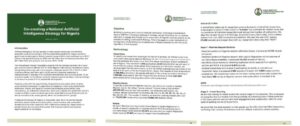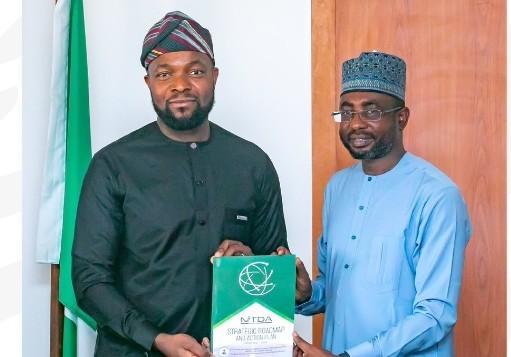The Federal Ministry of Communications, Innovation and Digital Economy will build on existing work done by the National Information Technology Development Agency (NITDA) to develop a National Artificial Intelligence (AI) strategy.
This was revealed in a white paper titled ‘Co-creating a National Artificial Intelligence Strategy for Nigeria’, which was posted on Twitter by the Minister of Communications, Innovation and Digital Economy, Dr. Bosun Tijani via his official handle @bosuntijani.
According to the white paper, the Ministry is expanding its co-creation approach to engage and include top Al researchers of Nigerian descent globally, in the process of crafting a National Al Strategy that will help shape an approach to building innovative tech solutions to Nigeria’s most pressing national problems.
The white paper disclosed that a National Al Strategy for Nigeria to responsibly steer the Al revolution towards achieving national goals around job creation, social inclusion, and sustainable development has become imperative.
Why the National AI Strategy?
Artificial Intelligence (AI) has become a multi-purpose technology transforming production and service delivery, with the potential to significantly impact economic growth and social progress. Recent research shows that Al could contribute up to $15.7 trillion to the global economy by 2030, with $3 trillion from increased productivity and $9.1 trillion from new products and services (PwC, 2018).
The International Finance Corporation projects that the strategic adoption of Al could add up $234 billion to Africa’s GDP by 2030. Nigeria in this loop is considered to have a fast-growing technology start-up ecosystem (having attracted 25% of the $1.3 billion funding to African tech start-ups in 2021) and with proactive leadership, is well-positioned to leverage Al for economic diversification and inclusive growth.
As an innovation leader on the African continent, Nigeria needs to develop a national strategy to harness the power of Al for sustainable development.
Breakdown of the white paper

Methodology
To identify top researchers working in the field of Al globally, we obtained data from Lens (same data source used by McKinsey for the mckinsey-technology-trends-outlook-2023). We first extracted all articles in the field of Al where the authors’ affiliate institutions are in Nigeria. This resulted in 1,349 publications (5,127 records when we split each of the articles by author). At the global level (regardless of the institution’s country), we obtained data from the same source, on the top 50,000 published journal articles in the field of Al for each of the last 6 years (2018- 2023).
That resulted in total observations of 299,905 publications. We equally split each of the articles by authors resulting in 1,195,598 observations. We then merged the two datasets to have 1,201,366 observations (after dropping observations with null authors).
Nigerian Names
To identify researchers of Nigerian descent, we trained our models to identify Nigerian names. “names-dataset” (Python library) which contains 491,655,925 records from 106 countries will be utilised. For computing optimisation, names from 14 countries (BR, CH, CN, ES, FR, GB, GH, HN, IN, JP, NG, RU, SA, ZA) will be utilised. This resulted in building our Machine Learning models with a set of 116,391,361 names which contained 8,999,788 Nigerian names.
Models
We built 2 Machine Learning models (Naive Bayes & Logistic Regression) to enable us to identify researchers of Nigerian descent from Al published papers. Our Naive Bayes model reported 95.34% accuracy and our Logistic Regression model reported 97.40% accuracy (2-staged-level classification).
Research Index
To scientifically select top Al researchers among thousands of identified researchers, we developed a research index similar to the “h-index” but controlled for citation count and the experience of individual researchers and not just their number of publications. We utilise the “sjrdata’ library in R (SCImago Journal & Country Rank Data), which collates citations from over 5000 international publishers. We used the year 2021 ranking (27,339 journals) and merged them with our researcher’s data using their “1SSN”.
Stage 1 – Machine Support Decision
- Predicted authors of Nigerian descent with Naive Bayes. It produced 71,778 records of interest.
2. Predicted authors of Nigerian descent with Logistic Regression on the outcome of our Naive Bayes prediction. It produced 14,798 records of interest.
3. Identify unique records by removing duplicates (which resulted from splitting authors and ISSN). It produced 8,473 records.
4. Isolated researchers with at least 2 publications to enable us to calculate our researcher index. It produced 3,188 records of interest with 1,060 unique authors.
5. Isolated the top 145 researchers based on the index ranking and eventually isolated the most likely 100 names of Nigerian descent with publications in the field of AI.




